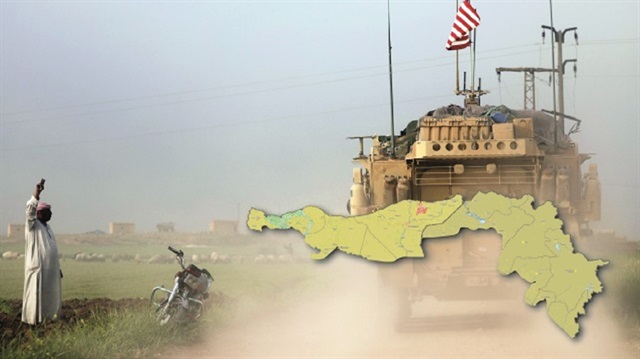
The independence referendum in northern Iraq will also be held in PKK/PYD controlled regions in Syria in an attempt to join the regions
The Kurdistan Regional Government (KRG) gained de facto autonomy in 1991 after the Persian Gulf War and bloody reprisals. The area has long been viewed as a proxy for foreign forces seeking to cause instability within the region.
Using Daesh as a guise to enter war-torn Syria, the U.S. is attempting to establish a Kurdish corridor in the eastern and northern regions of Syria led by the Kurdistan Worker’s Party (PKK) terrorist organization, just as it did in Iraq. Simultaneous referendums are being held in PKK-affiliated Democratic Union Party (PYD) cantons as a result of the Pentagon-PKK partnership in Syria and the U.S.-established KRG. The PKK is listed as a terrorist organization by Turkey, the European Union and the United States.
The date of the election as chosen by the Barzani administration for the KRG in northern Iraq is Sept. 25, and the referendum held in Syria’s Afrin, al-Hasakah, Raqqa, Kobani and Tel Abayd will be held on Sept. 28.
Mehmet Tütüncü, the president of the Iraqi Turks Association said that KRG, which includes the northern part of Iraq and the eastern and northern regions of Syria, is administrated by "a common mind." He also stated that the mastermind of the project was Israel, while it was executed by the U.S and Europe.
Tütüncü said the events unfolding today were the continuation of a period launched in the 1930s, and that Barzani, the Gorran Movement, the PKK, Taliban and even Islamist Kurdish circles viewed the "Great Kurdistan" project as a "national cause."
He pointed out that Britain, European countries and the U.S. have been raising Kurdish youth since the 1930s on "the ideal of the Great Kurdistan," and noted that there are active Kurdish diaspora across Turkey, Iraq, Iran and Syria.
Daesh, the terrorist organization that has fought against opposition groups in Syria since 2014, attacked Kobani in July of the same year. Peshmerga forces backed by the U.S. and Barzani fought as part of the PYD against Daesh. The PYD and Peshmerga partnership continued outside of Kobani in the Tel Abayd and Suluk regions.
Tütüncü said that within a maximum of three years the PYD-held regions in northern Syria and Barzani’s KRG will unite. He added that statements against the referendum in northern Iraq were “tactical moves,” and that the Gorran Movement, Komel (Kurdistan Islamıc Group) and the Patriotic Union of Kurdistan (PUK) would vote in favor of the independence referendum.
Slated for Sept. 25, the non-binding referendum will see residents of northern Iraq’s Kurdish region vote on whether or not to declare independence from Baghdad.
The Iraqi government rejects the planned poll, saying it will adversely affect the ongoing fight against the Daesh terrorist group, which still maintains a significant presence in Iraq.
Baghdad also believes that holding the poll would violate the Iraqi constitution.
Turkey, too, rejects the planned referendum, saying the region’s stability depends on the unity of Iraq and the maintenance of its territorial integrity.
Washington has likewise voiced concern that the poll could serve as a “distraction” from other pressing regional issues, especially the fight against terrorism and the stabilization of post-Daesh Iraq.









